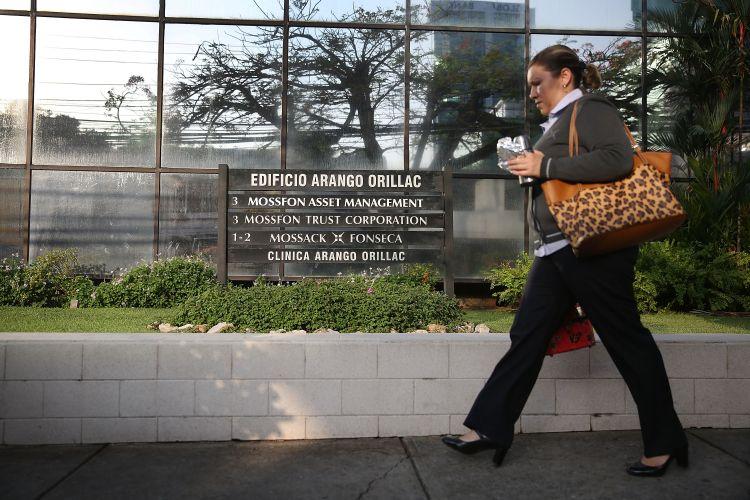The Panama Papers revelations have been astonishing - now let us see the documentation ourselves
My Week

For those of us who’ve campaigned long and hard to shut down London’s moneylaundering and tax evasion industry, it’s been a splendid week.
Sunday night and Monday morning’s explosive start to the Panama Papers revelations had me slavering at the prospect of sustained public attention on the offshore industry that shames Britain; that phalanx of ask-no-questions property agents, lawyers, tax accountants and collectibles dealers who have minted fortunes from corrupt foreign oligarchs and officials.
I’ve not been disappointed.
Day after day, the International Consortium of Investigative Journalists and its partner organisations have come up with sensational insights. While not always surprising, the revelations confirm and reinforce what we all suspected about how the offshore world works, and how horribly widespread this game is.
One whinge, though. I wish the ICIJ and its partner organisations would put more of the raw documents up online for us all to see. While the quality of the journalism analysing the paperwork has been high, there’s no substitute for letting the public see the actual material themselves as well.
I’m not saying the original papers should be published before the papers have reported on them – a scoop’s a scoop, after all. But once they’ve picked over the evidence, in the interests of the transparency the Guardian et al demand, the rest of us should be allowed a gander to pick up nuggets that might have been overlooked. They did it with the Luxembourg Leaks, so why not with this?
I’m not just speaking out of self-interest: there’s an army of decent anti-corruption and human rights NGOs, tax inspectors and honest businesses who could really benefit from scouring the prime source material for information on the dodgy deals.
The ICIJ says it’s holding back to prove leaks can be handled responsibly, rather than just be dumped on an open forum like Wikileaks in ways that might unfairly smear the innocent. But surely their lawyers can make redactions where necessary.
An exciting week, then, but frustrating too.
Too Brits in the frame to run two of the top global banks
I regretted not having a few mill tucked away in Panama myself on Wednesday. A banker pal over on a surprise visit from New York texted just as I was heading home to my Easter holidaying family. “Come on, just a couple of beers :-)” he wheedled.
A few lagers, too many cocktails and an absurdly expensive Kensington club later, my wallet was feeling flimsier than the Aintree outfits at Lady’s Day.
At one stage in proceedings, we traded gossip about who’s up and who’s down in banking. I’d heard a yarn that John McFarlane, the Barclays chairman, would be retiring hurt by the end of the year. My chum responded that Wall Street’s still guessing over the succession at the two most powerful banks in the world: Goldman Sachs and JPMorgan.
Both the incumbent chiefs, Lloyd Blankfein at GS and Jamie Dimon at JP, have just got over cancer scares and are apparently back in rude health, but retirement beckons in the next few years.
Gary Cohn – despite the fact he could well be 60 by the time Blankfein sails off - still seems to be favourite to take his place at Goldman. But a couple of outliers at JP had me scribbling their names on the back of my matchbook. Why? Because Marianne Lake (chief finance officer) and Gordon Smith (head of retail banking) are both Brits.
Now, if Cohn’s horse falls at the final hurdle at Goldman for any reason, Londoner Michael “Woody” Sherwood will fly up the field towards the corner office marked “Chief executive”.
So we have an outside chance of two limeys running the two biggest banks on the street of dreams. What a story that would be.
My first Brexit boss
Lunch at The Goring, Margaret Thatcher’s favourite haunt in Belgravia, was a shocker. And not just because my grazing partner’s knife had to be sent back, grubby, after we sat down.
The surprise was that this gossipy soul, annoyingly tanned and handsome from a week in the tropics, turned out to be my first FTSE-100 Brexit boss.
Week in, week out, I meet up with our corporate captains, only to hear one after another agree with me on the Big Question. To be honest, it’s getting rather dull. But this one was a fully fledged – albeit still not out in public – Brexiteer.
What fun it was to have a decent Brussels brawl over the skate wings for a change.
“But… but, you’re the only boss on the Footsie who wants a Brexit!” I blurted as he started getting the upper hand.
His response was rather convincing. “Let me explain what life’s like for a CEO,” he drawled. “You know you’re only there, earning the big money, for four or five years. All you want to do is make sure nothing screws up on your watch. Brexit would create short term instability before the benefits for the country start to flow, by which time the current crop of bosses like me will be long gone. No wonder they’re Inners.”
Corporate bosses only out for themselves? Surely not.
Subscribe to Independent Premium to bookmark this article
Want to bookmark your favourite articles and stories to read or reference later? Start your Independent Premium subscription today.

Join our commenting forum
Join thought-provoking conversations, follow other Independent readers and see their replies